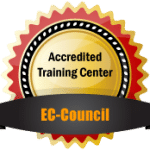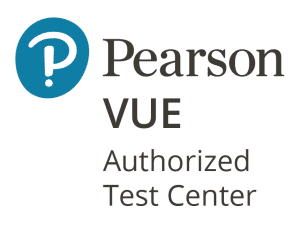Microsoft 365 Fundamentals (MS-900)
Classroom
£700
Virtual
£550
OR 12 monthly interest-free installments of £200.00
Full payment discount £200.00
- Highly experienced trainers
- Completely Hands on experience.
- 100% passing Guarantee or Free Re-training
- Highly competitive Cost
Duration : 1 Days (Weekdays)
1 Week (Weekends)
Training Mode : Classroom / Live Virtual
Interest Free Finance Available
Enquire Now









COURSE INSIGHT
This course is design for IT professional who aspire to design and deploy cloud services in their organization such as Software as A service (Saas), Platform As a Service ( Paas), Infrastructure As A service (Iaas) and to acquire a fundamental knowledge about cloud computing and office 565. This course also help delegate to have a better understanding about security, compliance, privacy and Trust in Microsoft office 365. In this course, you will be introduce for Microsoft Azure and difference between Microsoft 365 and office 365.
Follow On Certification:
- Windows Client (MD-100)
- Managing Modern Desktop (MD-101)
- Microsoft Azure Fundamental (AZ-900)
- Microsoft Azure Administrator (AZ-104)
Career Prospect
Learning Facilities
General Facilities
Dates & Timings
| Start Date | Timing | Days | Duration | Mode Of Training | |
|---|---|---|---|---|---|
| 15/05/2023 | 10:00 – 18:00 | Monday Only | 1 Days | Classroom Based | |
| 17/07/2023 | 10:00 – 18:00 | Monday Only | 1 Days | Classroom Based | |
| 18/09/2023 | 10:00 – 18:00 | Monday Only | 1 Days | Classroom Based | |
| 20/11/2023 | 10:00 – 18:00 | Monday Only | 1 Days | Classroom Based |
Course Contents
Topics Covered (MS-900)
Module 1: Describe the different types of cloud services available
- describe Microsoft SaaS, IaaS, and PaaS offerings
- cloud-based productivity solutions for organizations and individuals
- describe differences between Office 365, Microsoft 365, and Windows 365
Module 2: Describe the benefits of and considerations for using cloud, hybrid, or on-premises services
- describe public, private, and hybrid scenarios
- compare advantages of cloud-based services versus on-premises services
- identify factors that drive organizations to move to the cloud
- describe hybrid working strategies, flexible working strategies, and frontline workers
Module 3: Describe productivity solutions in Microsoft 365
- describe the core productivity and teamwork capabilities in Microsoft 365 including Microsoft Outlook and Microsoft Exchange, Microsoft 365 apps, and OneDrive
- describe Microsoft 365 Apps including Word, Excel, PowerPoint, Outlook, and OneNote
- describe work management capabilities in Microsoft 365 including Project, Planner, Bookings, and ToDo (Tasks)
- describe business class email and calendaring solutions with Microsoft Exchange
Module 4: Describe collaboration solutions in Microsoft 365
- describe the collaboration capabilities in Microsoft 365 including Microsoft Teams, Teams Phone, Yammer, SharePoint, and Stream
- describe the collaboration workloads of Microsoft Teams and the value that they provide
- describe the core employee experience capabilities in Microsoft Viva
- describe the ways that you can extend Microsoft Teams by using collaborative apps
- describe the features of Microsoft SharePoint and Microsoft OneDrive that promote collaboration
- describe how Yammer helps communities connect and grow
Module 5:Describe endpoint modernization, management concepts, and deployment options in Microsoft 365
- describe the endpoint management capabilities of Microsoft 365 including Microsoft Endpoint Manager (MEM), Windows 365 Cloud PC, and Azure Virtual Desktop.
- compare the capabilities of Windows 365 and Azure Virtual Desktop and when it makes sense to implement either
- describe the deployment and release models for Windows-as-a-Service (WaaS) including deployment rings
- identify deployment and servicing methods for Microsoft 365 apps
Module 6:Describe analytics capabilities in Microsoft 365Describe analytics capabilities in Microsoft 365
- describe the capabilities of Viva Insights
- describe the capabilities of the Microsoft 365 Admin center and Microsoft 365 user portal
- describe the reports available in the Microsoft 365 Admin center and other admin centers
Module 7:Explain zero-trust security principles for Microsoft 365
- identify key components that need to be protected within an organization’s cloud and on-premises infrastructure
- describe the principle of least privileged access
- describe the principle of explicit verification
- describe the principle of assumed breaches
Module 8:Describe identity and access management solutions in Microsoft 365
- describe the identity and access management capabilities in Microsoft 365 including Azure Active Directory and Azure Identity • describe cloud identity, on-premises identity, and hybrid identity concepts
- describe the purpose and value of implementing multi-factor authentication (MFA)
- describe the purpose and value of conditional access
Module 9:Describe threat protection solutions in Microsoft 365
- describe Microsoft 365 Defender, Defender for Endpoint, Defender for Office 365, Defender for Identity, and the Microsoft Defender Portal
- describe Microsoft Secure Score benefits and capabilities
- describe the most common types of threats against endpoints, applications, and identities
- describe how Microsoft addresses the most common threats
- describe how threat mitigation can be automated with artificial intelligence by using Microsoft 365 and Azure Sentinel
Module 10:Describe trust, privacy, and compliance solutions in Microsoft 365
- describe compliance solutions in Microsoft 365
- identify differences between the Service Trust portal and Compliance Manager
- describe how Microsoft supports data residency to ensure regulatory compliance
- describe information protection and governance options including data loss prevention (DLP) classification labels
- describe Compliance Manager, Compliance Scores, and the benefits that they can provide to an organization
- describe insider risk management solutions to protect against internal threats
- describe auditing and eDiscovery solutions
- describe privacy management concepts
- describe Microsoft’s privacy principles
Module 12:Plan, predict, and compare pricing
- describe the pricing model for Microsoft cloud services including enterprise agreements, cloud solution providers, direct billing
- describe available billing and bill management options including billing frequency and methods of payment
Module 13:Identify licensing options available in Microsoft 365
- describe the available base licensing and management options
- describe add-on licensing options
Module 14:Describe the Microsoft 365 service lifecycle
- describe private, public preview, and general availability (GA) options
- describe the correlation between lifecycle options and pricing
- describe use cases and capabilities for the Microsoft 365 Roadmap portal
Module 15:Describe support offerings for Microsoft 365 services
- describe how to create a support request for Microsoft 365 services
- describe service level agreements (SLAs) concepts including uptime principles, service credits for refunds, SLA tiers, roles, and responsibilities
- determine service health status by using the Microsoft 365 dashboard or the tenant dashboard
- describe how organizations can communicate with Microsoft about product and service improvements
Our Popular Training Packages
Network Engineer Training
Courses included in the package :
- CompTIA Network+ (N10-008) - Optional
- CCNA (200-301)
- CCNP Enterprise (350-401,300-410)
£3000
Interest Free Finance Available
IT Support & Cloud Engineer
Courses included in the package :
- CompTIA A+ (220-1101,220-1102)
- MS Endpoint Administrator (MD-102)
- MS Azure Administrator (AZ-104)
- MS Office 365 (MS-100,MS-101)
£3000
Interest Free Finance Available
Cyber Security Specialist Training
Courses included in the package :
- CompTIA A+ (220-1001, 220-1002)
- CompTIA Network+ (N10-008)
- CompTIA Security+ (SY0-601)
- Certified Ethical Hacker (CEHv12)
£3000
Interest Free Finance Available
Reviews



